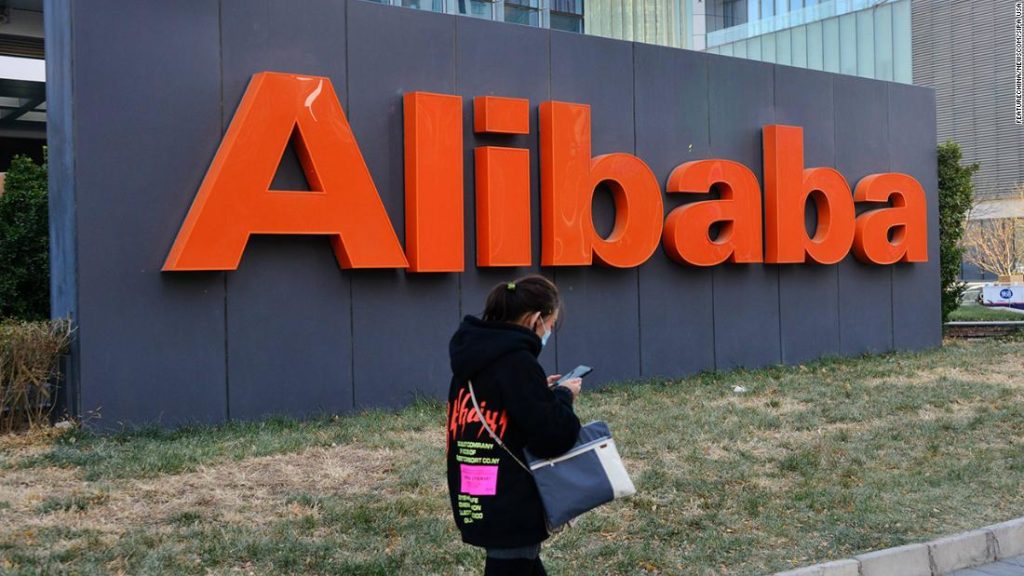The company is expected to report a 33% jump in revenue for the quarter ended December compared to a year earlier, according to analysts polled by Refinitiv.
But strong revenue might not be enough to soothe concerns from investors, who have been rattled by worries over how hard Chinese authorities might come down on Jack Ma’s tech empire.
Ma, who co-founded Alibaba more than two decades ago, built the company into one of China’s most powerful tech titans. It generated nearly $80 billion in revenue for the fiscal year that ended last March, and it has a market capitalization of more than $700 billion, making it one of the world’s most valuable tech companies.
But Beijing has become increasingly concerned about the clout that big, private tech firms have over the financial industry and other sensitive areas, and how entrenched they have become to everyday life in China through digital payments apps and other services.
Since then, the landscape has worsened for Alibaba and other Chinese tech firms. President Xi Jinping in December called efforts to strengthen anti-monopoly rules against online platforms one of the most important goals for 2021, according to state news agency Xinhua. And regulators announced an antitrust investigation into Alibaba on Christmas Eve.
Yi Gang, the governor of the People’s Bank of China, said last week at a virtual Davos forum that regulator involvement in that company is ongoing.
The issues facing Alibaba and Ant have dented the former’s share price. Alibaba’s New York-listed shares are down about 17% since a peak in late October, a plunge that has wiped off more than $140 billion from its market capitalization.
Some analysts suspect Alibaba may survive regulatory scrutiny from China relatively intact. Martin Chorzempa, a senior fellow at the Peterson Institute for International Economics, said Chinese authorities likely want to be careful “not to kill the goose that lays the golden eggs,” after all.
But experts warn that the days of unchecked growth are probably over.
“It is clear that [Beijing] is going to narrow the scope of managerial independence through regulation and informal ‘guidance’ to the [Alibaba] conglomerate,” said Doug Fuller, an associate professor at the City University of Hong Kong who studies technological development in Asia.
As for Ant Group, the company will likely still be allowed to go ahead with an IPO once regulators are finished grilling the company over anti-monopoly concerns and consumer privacy issues, according to Kevin Kwek, managing director and senior analyst at Alliance Bernstein.
But if it is forced to make any drastic changes, that could hurt Ant’s valuation when it eventually is able to list. Before the IPO was pulled, Ant was expected to become the largest initial public offering ever with a $34 billion share sale.
“You can bet the best minds of Ant [are] working on the challenges as we speak,” Kwek said. “The question is how much they end up ‘giving up’ and what that could mean for valuations.”
You may also like
-
Afghanistan: Civilian casualties hit record high amid US withdrawal, UN says
-
How Taiwan is trying to defend against a cyber ‘World War III’
-
Pandemic travel news this week: Quarantine escapes and airplane disguises
-
Why would anyone trust Brexit Britain again?
-
Black fungus: A second crisis is killing survivors of India’s worst Covid wave

